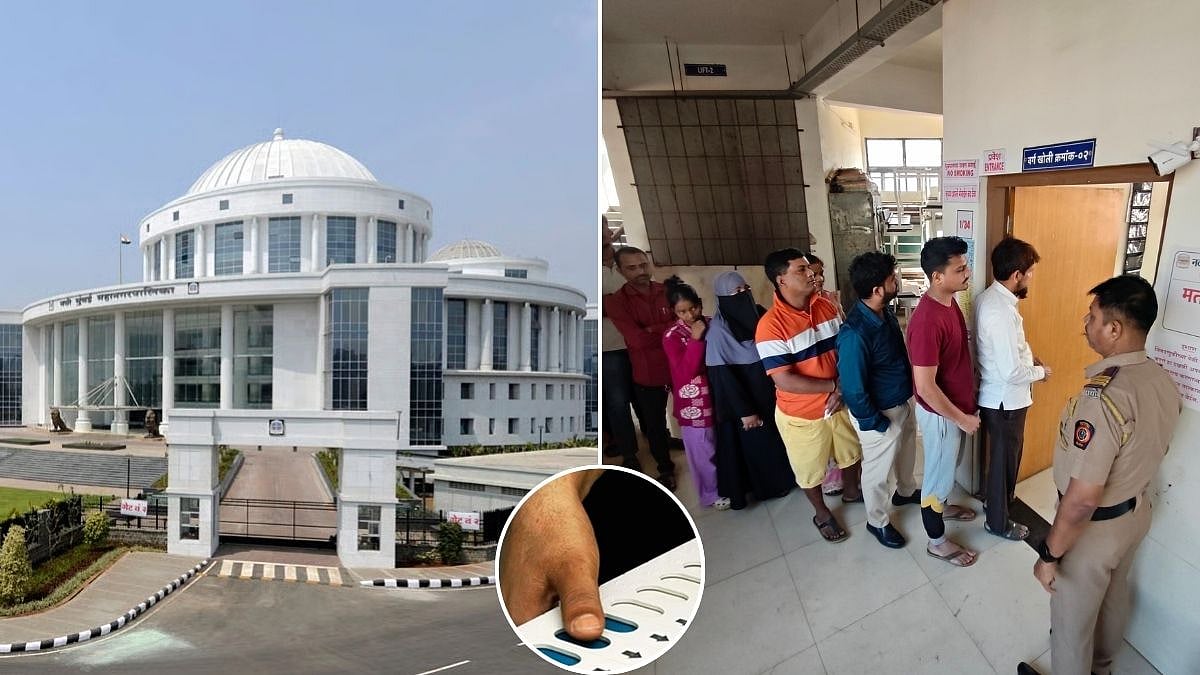That’s Shashi Tharoor, the man who sends netizens in a tizzy every time he posts words like floccinaucinihilipilification. Here he speaks to Manasi Y Mastakar about his latest release, The Paradoxical Prime Minister, politics and more…
Why did you feel the need to write the book? Given that it is apparently anti-Narendra Modi, aren’t you worried about facing a backlash?
Such considerations would be unworthy of the democracy we claim to be. I have been dealing with various forms of personal harassment at the hands of the authorities for some time now — worst of all, a prolonged investigation, punctuated by nasty leaks, culminating in a shameful police charge-sheet relating to the death of my late wife.
I have also been frequently victimised by sections of the BJP-leaning media which have tried to twist, misattribute or misquote my public statements for some lurid headline or the other. No doubt they have even worse in mind, but I believe I have shown that whatever they fling at me, I will not be intimidated—and I will certainly not let their insecurities affect the way or how I write.
What can readers expect from The Paradoxical Prime Minister?
In The Paradoxical Prime Minister, the reader can expect to find a substantive and substantiated takedown of the last four-plus years of Modi rule and everything that has happened in that time. I have actually laid out the yardsticks in terms of very specific things that the PM said he would do and he has not done. And I have gone through it in some detail with the wealth of evidence, research, facts and figures, anecdotes and footnotes.
Just to say that we don’t like Modi is not the point. There are many people in India who do like Modi. Why do they like him? That is a point worth understanding. But at the same time why shouldn’t they be as impressed by him and his record? That is the other point that is fully answered in my book.
How long did it take for you to finish this book?
As a sitting Member of Parliament with full time responsibilities in his constituency that take up much of any given day, most of my writing happens at night. At the expense of my sleep, the book was put together through the better part of nine months. But it was worth it, because the impact of the book is greater now, with only a few months left to the 2019 Lok Sabha elections, than had it arrived in the midst of the hullaballoo of an ongoing election.
Being a leader from the Opposition, isn’t it obvious that you would write against or be critical of the Prime Minister?
I do understand that there may be an assumption that given that I am an Opposition MP I can only be critical — and at some level, that is a fair assumption. At the same time, however, I do have my own credibility as an analyst and writer to protect, and what my book has consciously sought to do is to make a fair-minded and rational argument — I have consistently (even in my criticism of Mr Modi) tried to maintain a fairly reasoned and substantiated argument.
In fact, I have, alongside my criticism, also listed several aspects of the PM that I find commendable. His rise from very modest origins is admirable. I also defend his habits of personal grooming and his giving away his salary to charity. I have also praised the energy with which Mr Modi jet-sets around the world. But at the same time, I have questioned the results of all of this: How have they benefited the nation?
Modification’, ‘Modinomics’, ‘Modittva’ …some interesting choice of words for chapter titles. What prompted the coining of these terms?
While I cannot claim credit for coining these words (barring ‘Modification’ perhaps, which I came up with as soon as he was elected), I think these phrases are indicative of the larger than life pedestal occupied by Modi and the cult of personality that has been enshrined around him by his followers and supporters
‘Moditva’, for instance, borrows from Hindutva the idea of a pristine Hindu Rashtra, a nation emerging from the mists of time immemorial, the Bharatvarsha of the Rig Veda; it asserts a majoritarian nationalism in the name of the Hindu people, marginalising or demonising minorities — particularly Muslims and Christians — as interlopers; it articulates a cultural nationalism anchored in the Hindu dharma, but extending beyond it.
On top of this foundation of Hindutva, it builds the idea of a strong leader, a man with a 56-inch chest, powerful and decisive, who embodies the nation and will lead it to triumph. This is the element that makes the ruling credo ‘Moditva’.
Why I am a Hindu was released earlier this year, and now this one. How do you take out time for writing? What process do you follow as a writer?
As I mentioned previously, a lot of it comes from finding that extra hour or two every night to write — after a hectic day (and most days inevitably are), I find that it’s only at night when I can be free of interruptions and enjoy a fairly uncluttered mind, which is important to think clearly and find a mental space that is conducive for writing.
I do not have a single regimented process that I follow, since it usually varies according to the type of piece I am writing — if it’s an article, then I try to finish it in one go; when I am writing longer pieces, such as working on a book, inevitably, at some point or the other, I am interrupted. When I return, I re-read what I have written, I correct it with a fresh and clear mind and then continue; and in my non-fiction, in order to be efficient, I try and get most of my research done from the internet, rather than having to visit an archive or library and so on. Each form of writing calls for its own suitable process.
Any tips for budding writers?
Always try and be honest with whatever subject your piece is dealing with. We live in a clutter of imitative writing and a sincere treatment of the subject is often conspicuously absent. Write what you care about; readers will be attracted to your passion.
In the Opposition there is no clear agreement on ranks in leadership, while on the other hand PM Modi continues to be a favourite of the masses, despite regular criticism and scathing attacks by the Opposition. Is the Opposition getting weaker?
I don’t think that is a fair assessment of the performance of the Opposition in these last four years. On the contrary, I believe that we have actually succeeded in raising the consciousness of the nation (whether in Parliament or elsewhere) when it comes to the mistakes of the ruling dispensation, as well as the dangers it poses by providing a free rein to incendiary communal elements in the country.
From the Ramzadein-Haramzadein controversy, mob-lynchings, demonetisation and the botched implementation of GST, to the Vyapam and Rafale scams and our tense relations with Pakistan and China, the Opposition’s criticism of the present government has covered a vast spectrum of topics — foreign policy, economy and socio-cultural aspects — and I think we have done a convincing job of highlighting the perils of giving the ruling party a second chance, in the upcoming General Elections.
Many says Congress has lost its charm and the One-Party Dominance hold in politics, would you agree?
Again, I do not think that is a fair assessment — and I say this not just a Congressman defending his party, but as someone reading the facts that are available for all to see. Just look at the results of the recent state elections: We have already seen the defeat of the RSS-BJP electoral machine in Karnataka and the results in Gujarat, though far from perfect, reflect a serious crisis of credibility in the ruling dispensation.
I am also confident that the Congress and its allies are likely to come back to power in Madhya Pradesh and Rajasthan and offer a stiff contest in Chattisgarh, Telangana and Mizoram. All of this has been possible because we have regained the trust of the people by offering a credible alternative to the polarising autocratic rule of the present ruling dispensation.









